High Maintenance Cats Make Woman's Life a Living Hell; Hates Them More After Her Husband Refused to Rehome Them
Cats classified as high-maintenance belong to a distinct group of animals that demand more financial resources, dedication, and careful attention from their owners. These cats may have specific health and grooming requirements, in addition to generally requiring a higher degree of interactive participation.
A cat may be labeled as "high maintenance" due to breed characteristics, personality traits, or even health issues requiring more involved routine care. Prospective cat parents must comprehend the subtleties of raising high-maintenance cats.
The OP and her husband have two cats that are possibly the neediest animals that have ever existed. The OP never wanted them in the first place because she is actually allergic.
OP's husband loves cats and insisted on adopting five. They have been making OP's life hell ever since.
These cats need constant attention and howl loudly if they don't receive it immediately. This was just one of the many challenges the OP faced.
Things worsened when they brought their newborn son home. The cats' behaviors escalated even more as they peed in her son's swing and his car seat, among other things.
The OP was fed up, as her husband worked long hours, and she was the one who cleaned up cat urine and vomit in addition to taking care of the baby. She suggested rehoming the cats, but her husband was not receptive to the idea.
The OP then decided to share her story on Reddit.
The Headline
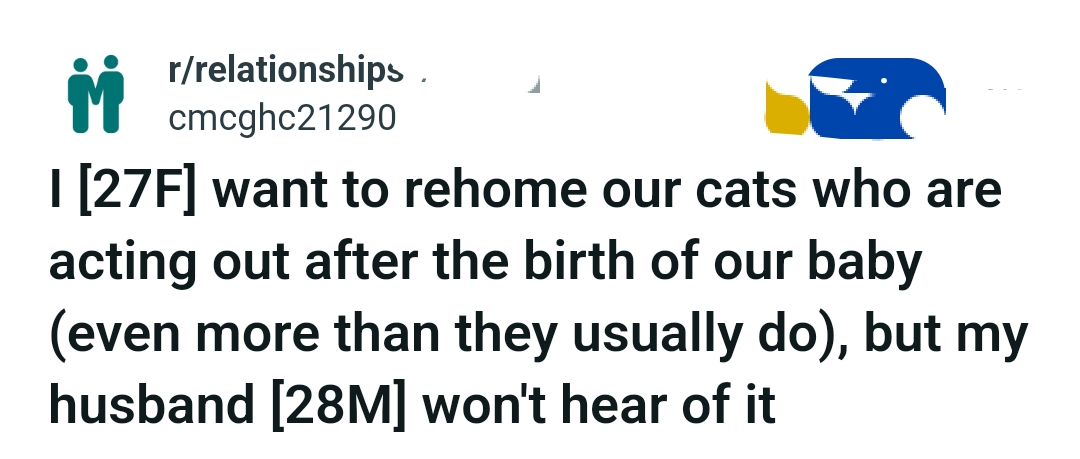
The OP Never Wanted Them in the First Place Because She's Actually Allergic
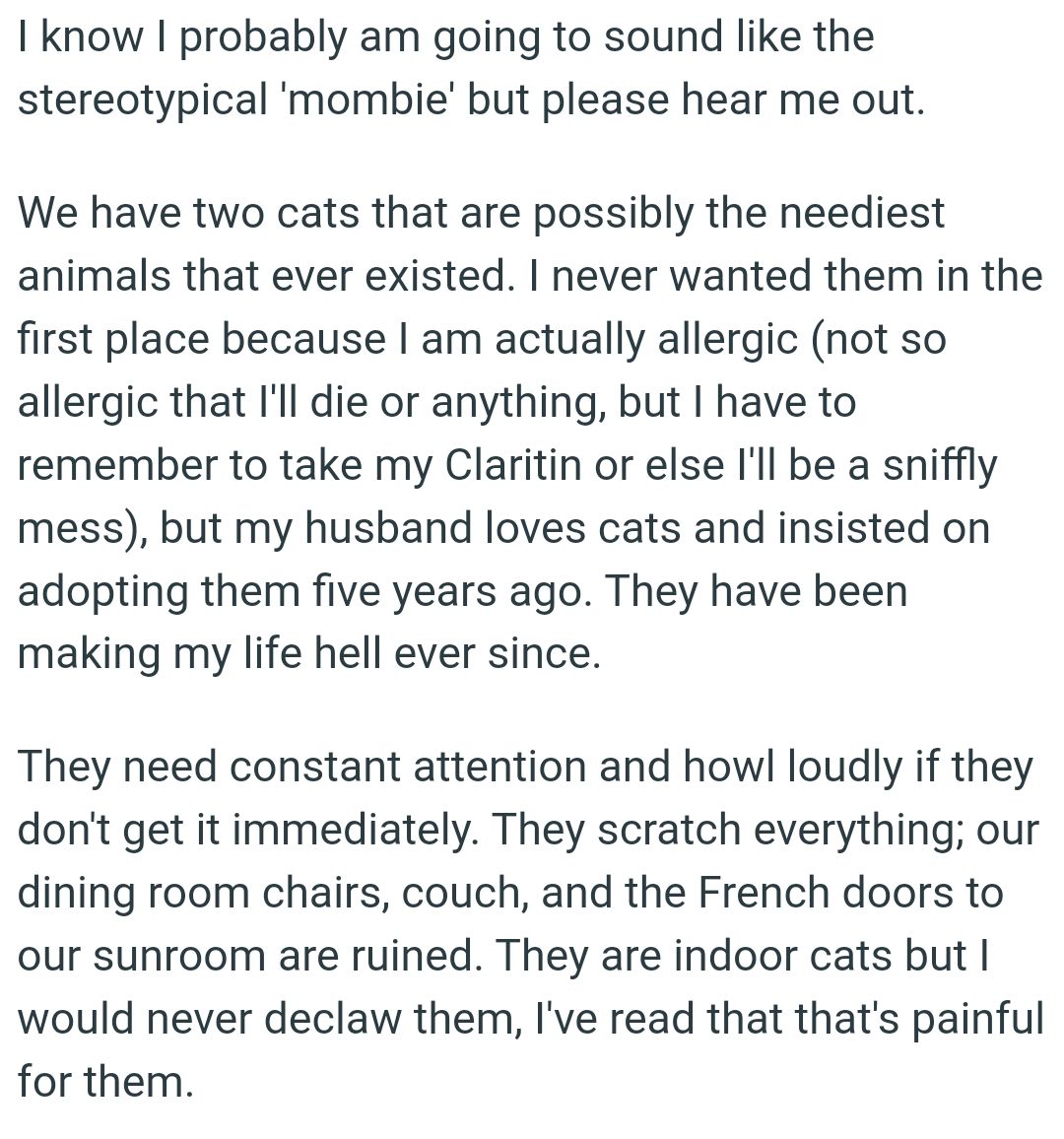
The Psychology of Pet Ownership
The relationship between humans and pets can evoke a range of emotions, from joy to frustration. A clinical psychologist specializing in human-animal interactions notes that pets can significantly impact our emotional well-being. However, when expectations around pet behavior are not met, it can lead to feelings of resentment and anger, particularly in high-maintenance situations.
Research indicates that pet ownership can be linked to increased stress levels if the caregiving demands become overwhelming. Understanding this dynamic is essential for pet owners, especially when navigating these challenges with family members.
They Have an Automatic Feeder That Goes Off Every 12 Hours with the Right Amount of Food
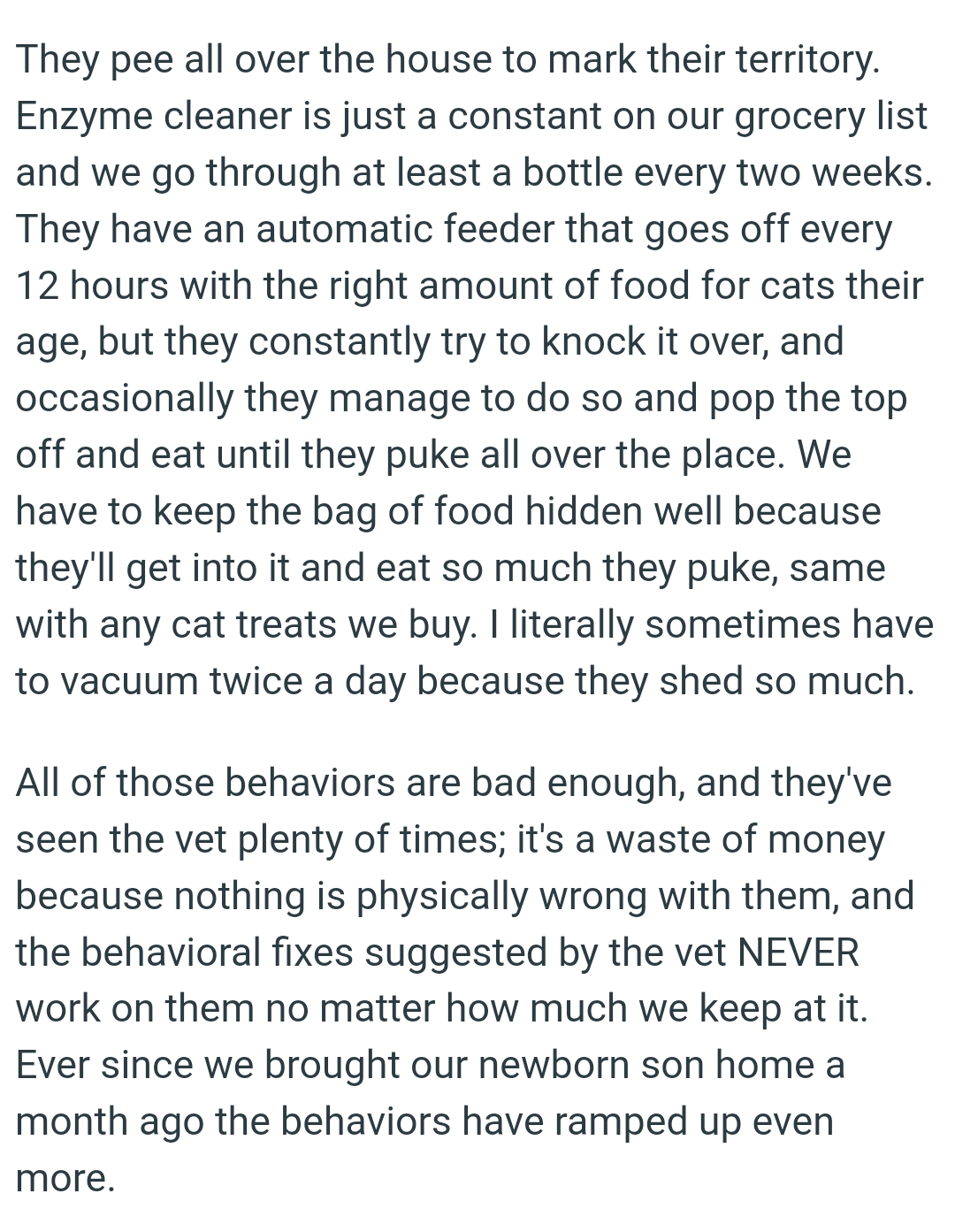
They Can't Keep Anything of Their Son's Anywhere That the Cats Can't Get to It
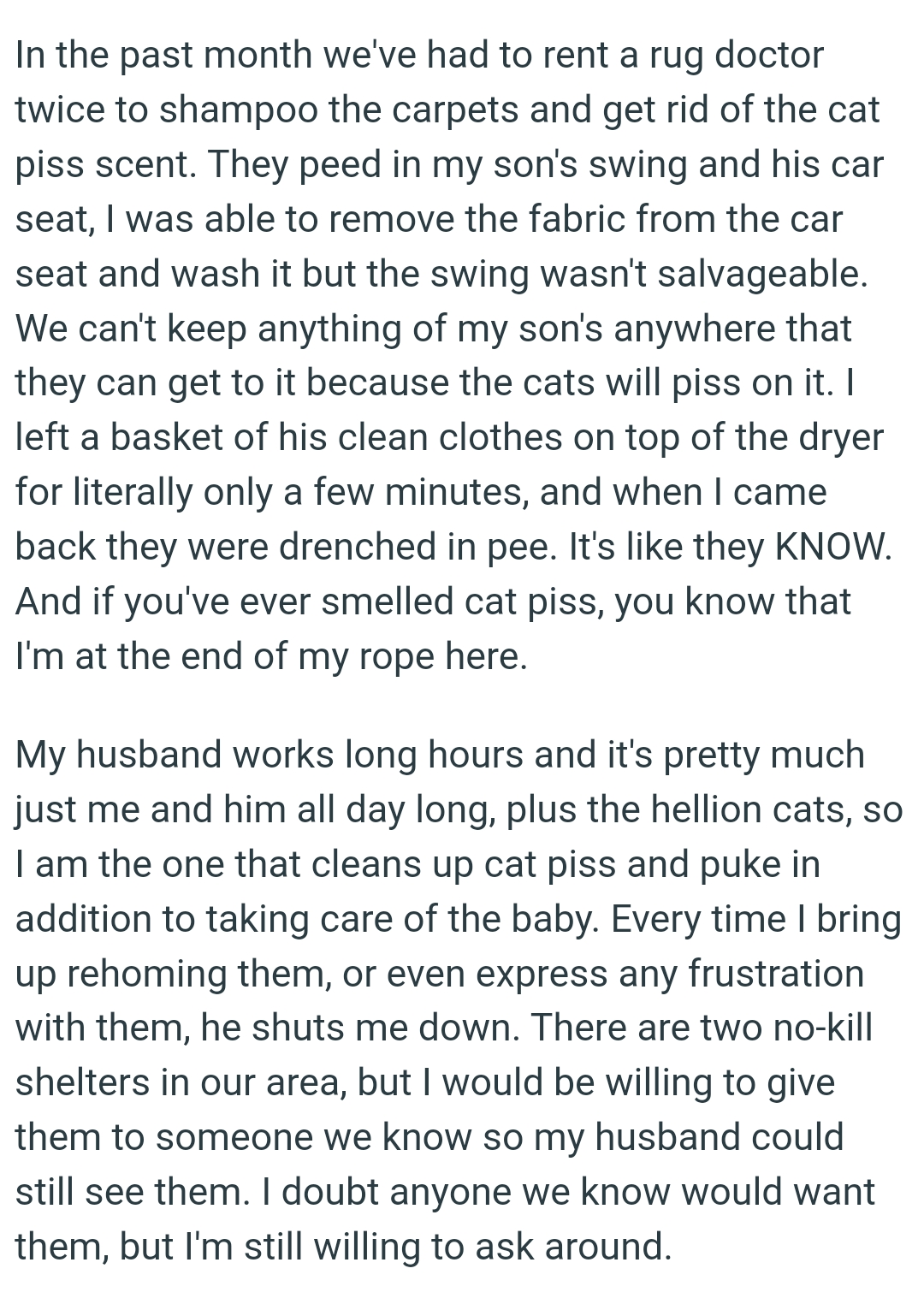
Just in Case the Story Was Too Long for You to Read, the OP Provided a Brief Summary Below:
We have two high-maintenance cats with numerous behavioral problems that have worsened since we brought our new baby home, and my husband won't consider rehoming them.
It's Not Like the OP Suddenly Decided She Hated Them When Her Son Was Born
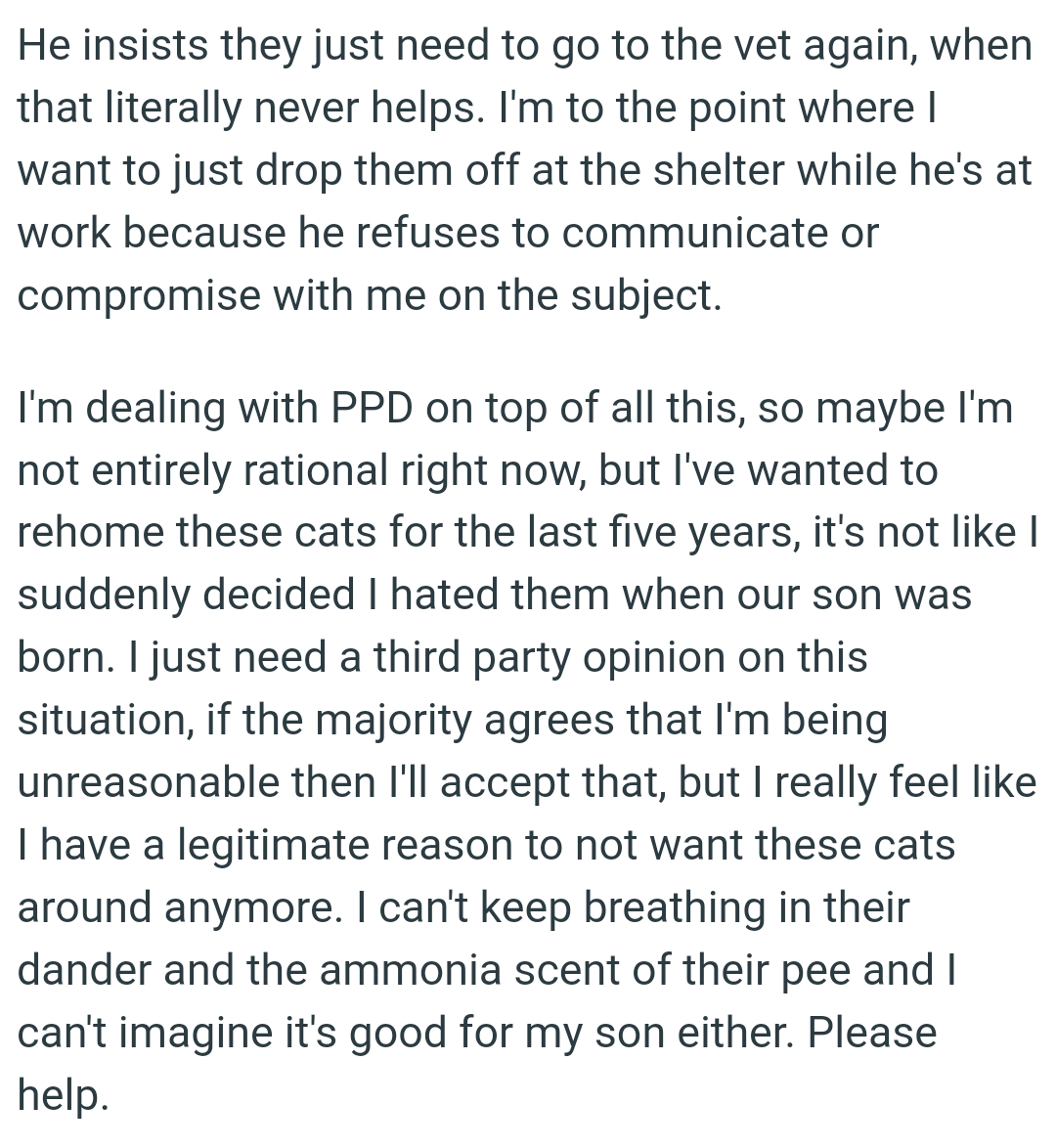
We've Gathered Some of the Most Upvoted Comments from Other Redditors for You to Read Through Below
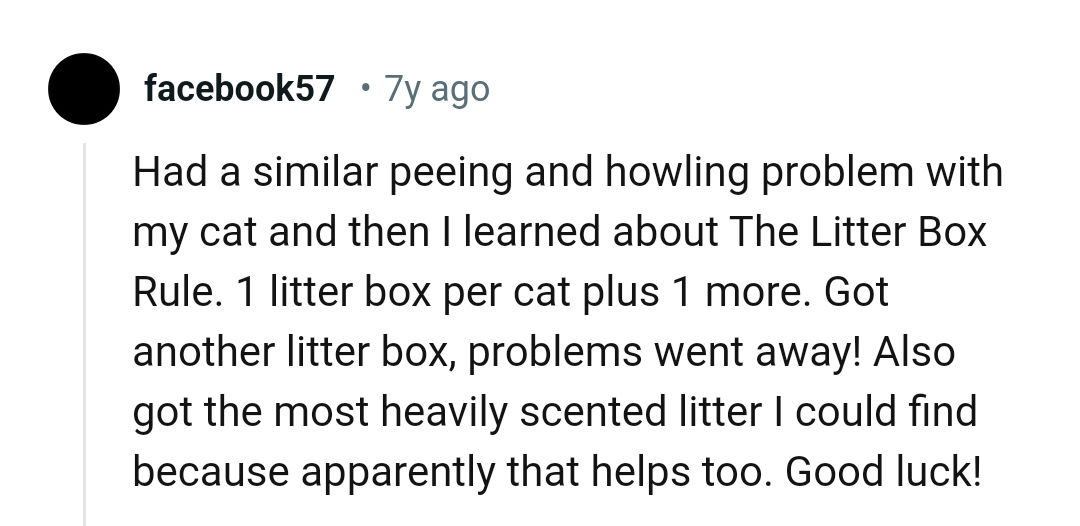
From a behavioral perspective, frustration with pets often stems from unmet needs, both for the animals and their owners. When a pet's behavior is perceived as troublesome, it can trigger stress responses in their owners, as documented in studies on the psychological impacts of pet ownership. This can lead to a cycle of negativity where the owner's frustration exacerbates the pet's behavior, creating an unhealthy dynamic.
Recognizing these patterns can help owners develop more effective strategies for managing their pets' needs and their own emotional responses.
It's Clear OP's Husband Isn't Caring for the Cats
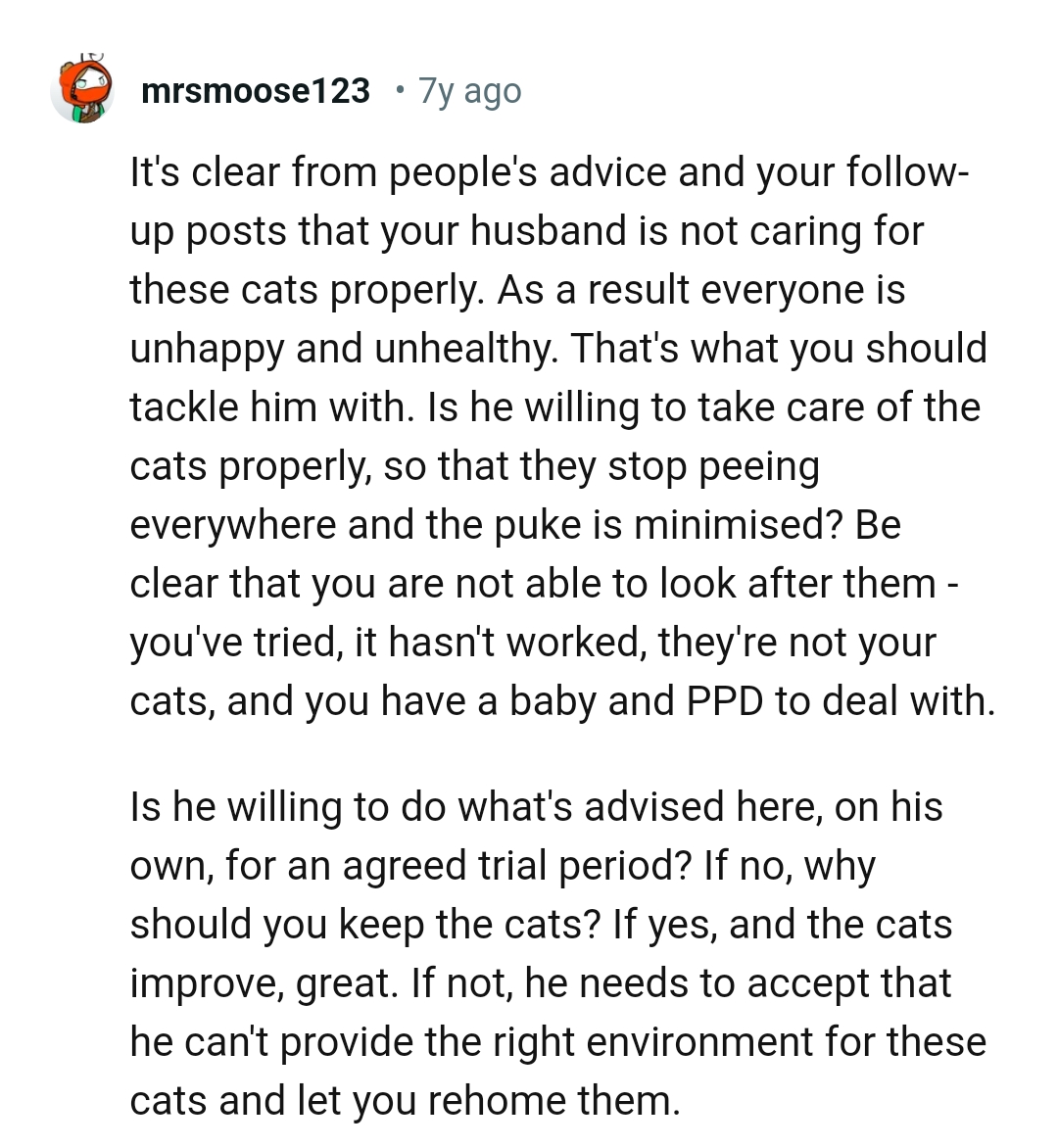
The Competitive Incessant Attention Seeking
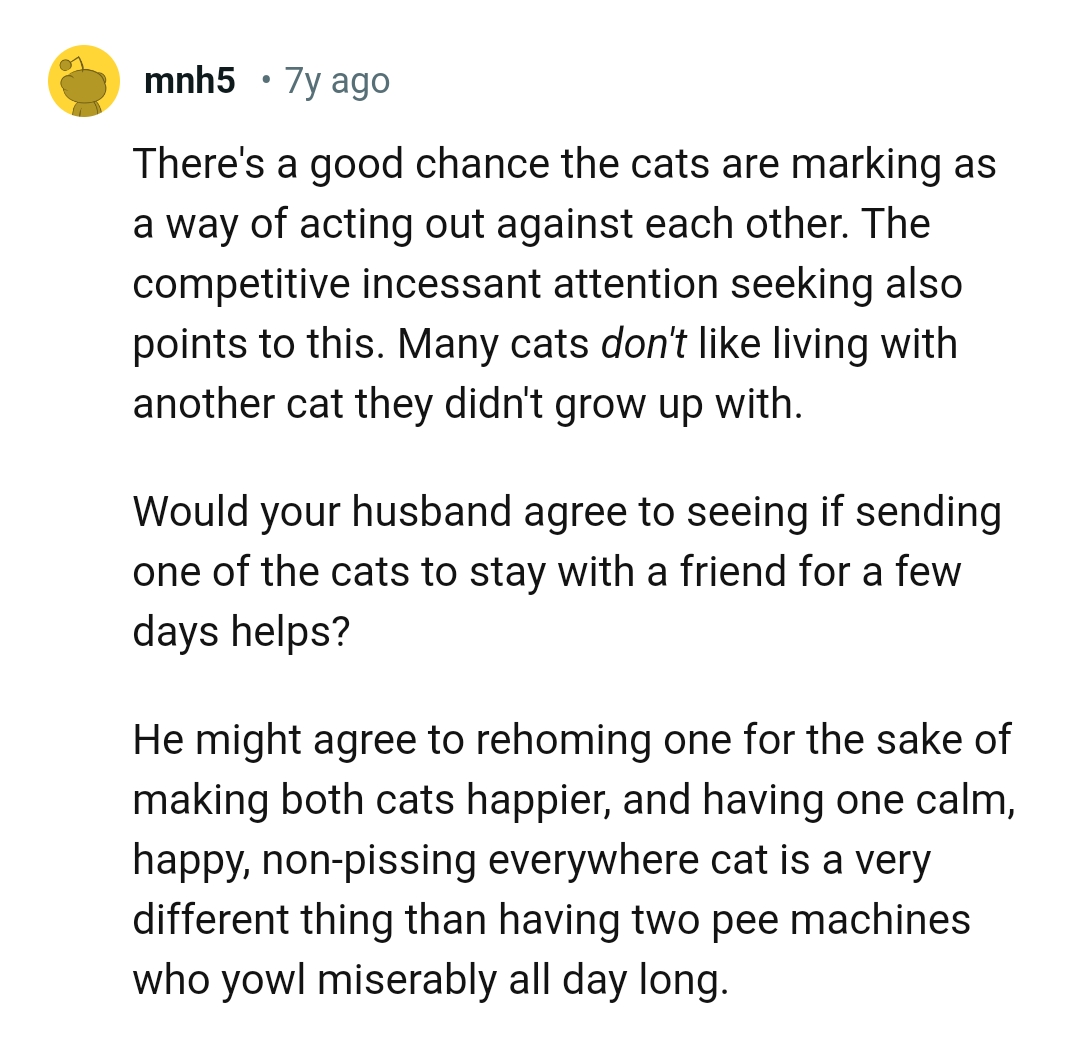
Navigating Conflicts with Family
Family dynamics often complicate the relationship between pet ownership and emotional well-being. When one partner is unwilling to compromise on pet care, it can create significant tension. According to family systems theory, these conflicts can reflect deeper issues of control, responsibility, and emotional support within the relationship.
Understanding that different family members may have varied attachment styles towards pets can also elucidate why conflicts arise. For instance, someone with an anxious attachment style may feel overwhelmed by the unpredictability of high-maintenance pets.
What Is Happening Is Horrible for the OP
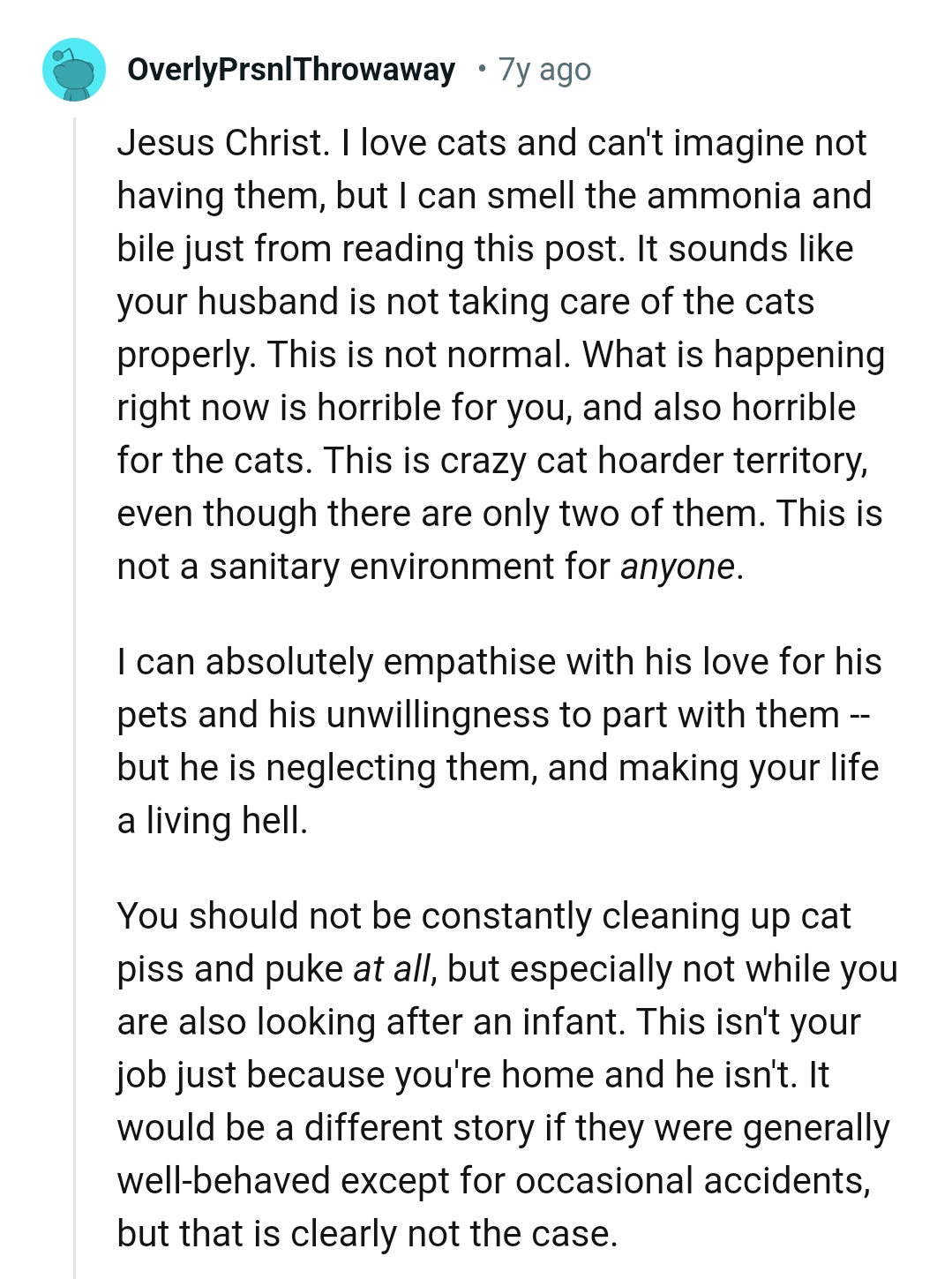
It's a Sacrifice That Needs to Be Made

To address these conflicts effectively, it’s essential to encourage open communication about expectations surrounding pet care. Family meetings can provide a platform for discussing feelings and responsibilities, helping to clarify shared goals. Additionally, seeking the assistance of a family therapist or counselor can help families navigate these emotional waters more smoothly.
Implementing structured routines for pet care can also lessen tensions by distributing responsibilities evenly and setting clear expectations for everyone involved.
It's Fair for Him to Do All the Cleanup
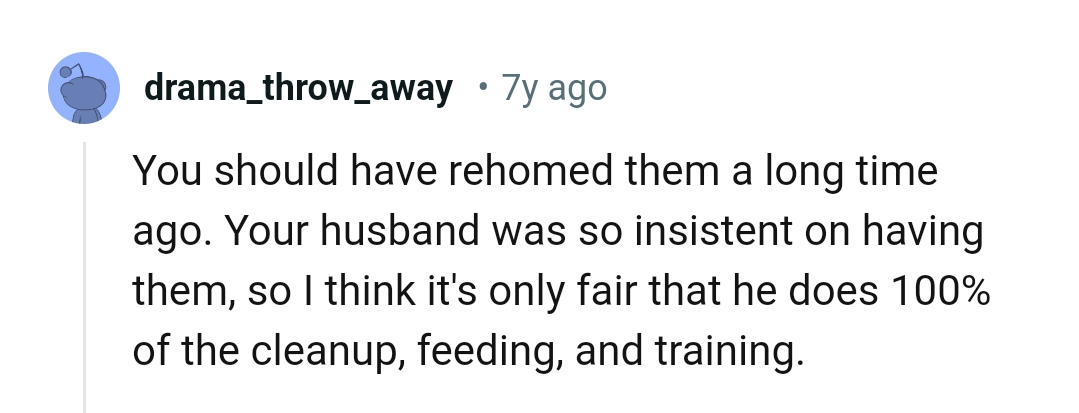
The OP Has a Baby to Look After
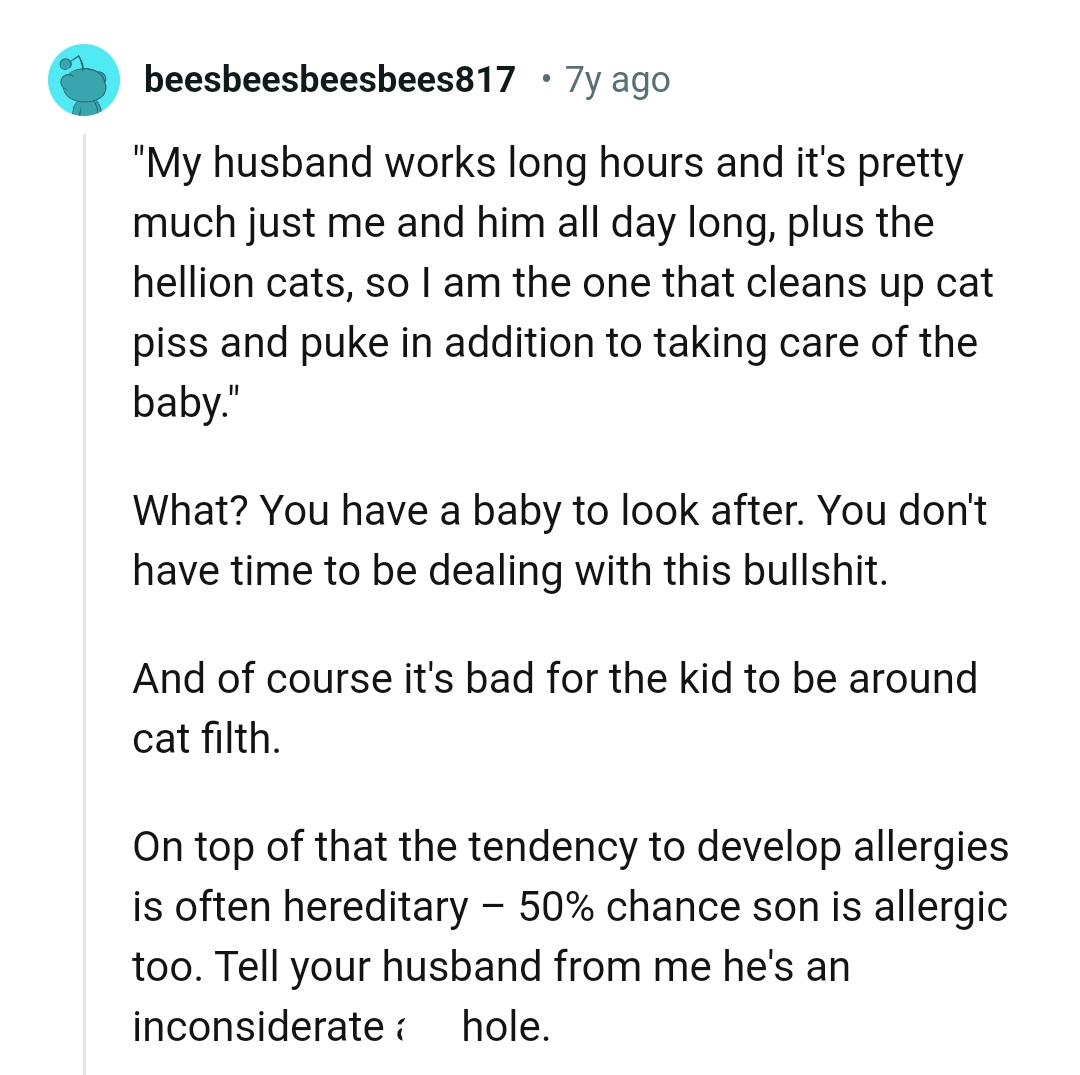
Many Redditors stated that OP's husband has an obligation to look after his pets. They require more litter boxes if they are indoor cats and must remain indoor cats for safety, so he must feed the cats, clean up after them, and maintain the litter boxes.
Some argued that OP's husband is not in a position to be a cat owner, and if his working hours prevent him from fulfilling that role, he must take responsibility for finding them new homes. Share your thoughts with us about this story by leaving a comment below.
Psychological Analysis
This situation showcases the emotional complexities that arise from pet ownership, particularly when family dynamics are involved. It’s common for differing expectations and attachment styles to create conflict, especially when pets require significant care. Encouraging open discussions about feelings and responsibilities can help families manage these challenges more effectively.
Analysis generated by AI
Analysis & Alternative Approaches
Understanding the psychological dynamics involved in pet ownership and family relationships can pave the way for healthier interactions. By fostering open communication and shared responsibilities, families can mitigate tensions arising from pet care challenges. As noted by Dr. Ramani Durvasula, clinical psychologist, "Effective communication is key to resolving conflicts, especially when it comes to shared responsibilities like pet care." This sentiment is echoed by Dr. Helen Fisher, biological anthropologist, who states, "Navigating complex family dynamics requires teamwork and understanding." Together, these insights highlight the importance of collaboration in managing the challenges of pet ownership.



